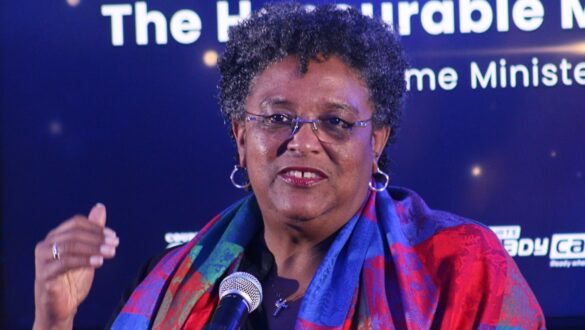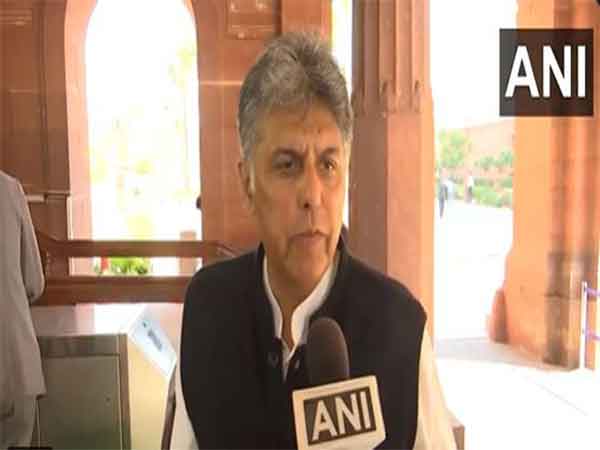
M orality has rocketed to the top of Barbados’ political agenda, if recent speeches from the leaders of the nation’s two main political parties are any indication. Both Prime Minister Mia Mottley and Opposition Leader Ralph Thorne have framed their visions for the country in moral and spiritual terms, calling for a return to wholesome values and a renewed emphasis on ethics. Yet, while their rhetoric may resonate with some, it raises pressing questions: Is this a genuine strategy for national renewal, or merely a deflection from more systemic failures? And can moral appeals alone address the deep-seated crises facing Barbados today? The renewed emphasis on morality is not coincidental.
It follows the horrific murder of a schoolboy at a community sporting event last month – an act that shocked the nation and intensified public fears over rising crime. In response, both leaders have pointed to a decline in national values, suggesting that Barbados has strayed from some golden age of virtue. Prime Minister Mottley, addressing the challenges of rising homicide rates during her administration, seems to be exploring spiritual solutions after other approaches have had limited success.

Her government has previously called for national days of prayer, though their impact on reducing crime has been hard to measure. However, this approach may come across as a reiteration of past efforts rather than a new, effective solution. Church attendance has been declining for decades, first eroded by television, then accelerated by social media, and further weakened by the pandemic.
While Barbados has not seen the mass closures of churches common in some Western nations, empty pews are now the norm. You Might Be Interested In #BTEditorial – Goodbye 2018, Hello 2019 #BTEditorial – Sleeping and turning our cheeks on crime #BTEditorial – Let’s get serious about our waste management To her credit, Mottley sought earthly advice through a National Advisory Committee on Citizen Security six months ago. However, with limited visible progress from this body, the government’s shift towards moral encouragement may be seen by some as less of a strategic move and more a sign of frustration that other efforts have failed to bear fruit.
Thorne, meanwhile, has made morality a central theme of his political messaging. Unlike previous party leaders, he openly discusses his personal faith, openly referencing prayer and divine guidance. At a recent gathering, he framed the next general election as a choice between “money or morality,” positioning himself as a champion of ethical governance.
But what does this actually mean in practice? If Thorne were to lead the next government, would he truly prioritise morality over economic necessity? Could he ensure that his ministers would resist corruption when faced with financial temptation? These are not abstract questions — they strike at the heart of governance. Many Barbadians face daily dilemmas between survival and integrity, particularly in an economy still recovering from pandemic shocks and global instability. Thorne’s moral posturing, while politically appealing, lacks concrete policy underpinnings.
The narrative of declining values is not unique to Barbados. Leaders across the world frequently lament that society is becoming less ethical than in some idealised past. But is this perception accurate, or is it a psychological illusion? In the United States, Gallup polls consistently show that citizens believe moral values are deteriorating.
When asked to identify the biggest moral problem in the country, respondents most often cite a lack of consideration for others. Yet, as psychologists Adam Mastroianni and Daniel Gilbert have demonstrated, this belief is nearly universal across cultures and eras. Their research suggests that people persistently – and incorrectly – believe that past generations were more virtuous.
Is Barbados truly less moral today? Are young Barbadians really less able to distinguish between right and wrong than their parents and grandparents, as the PM suggests? Or are we simply more attuned to societal problems thanks to 24-hour news cycles and social media? Take littering, for example: Is it really worse now, or are we just more conscious of environmental degradation, or is there more packaging to dispose of? Similarly, while violent crime is undeniably rising, is this due to a loss of values, or to the proliferation of illegal firearms and widening economic disparities? The danger in framing societal crises as purely moral failures is that it absolves policymakers of responsibility. If this nation is to reverse its current trajectory, its leaders must focus on tangible interventions in areas such as economic inequality by providing good-paying jobs, education reform with some focus on ethical reasoning and critical thinking, gun control and law enforcement, and transparency and accountability..











